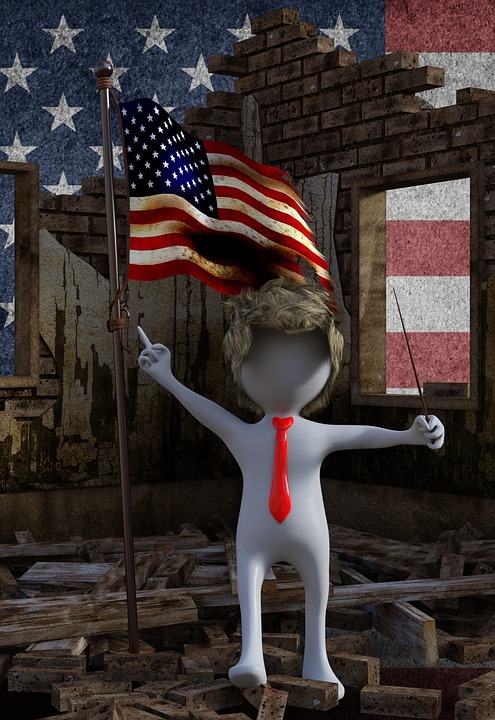
“Without freedom of thought, there can be no such thing as wisdom; and no such thing as public liberty, without freedom of speech.”
— Thomas Gordon, Cato’s Letter No. 15 (1721)
In a revealing new poll, it becomes abundantly clear that Americans perceive college campuses as leaning far more favorably toward liberals than conservatives when it comes to the vital concept of free speech. This perception spans across the political spectrum, with adults from all walks of life echoing their concerns about the unequal treatment of conservative viewpoints.
The numbers speak volumes: A staggering 47 percent of adults assert that liberals enjoy “a lot” of freedom to express their opinions on college campuses. In stark contrast, a mere 20 percent feel the same level of freedom is afforded to conservatives. These startling findings emerge from a comprehensive poll conducted by The Associated Press-NORC Center for Public Affairs Research in collaboration with the University of Chicago Forum for Free Inquiry and Expression.
It’s evident that this bias isn’t confined to one side of the aisle. Republicans, in particular, perceive a distinct tilt against conservatives on campus, painting a picture of a battleground where the Right’s freedom of speech is under siege. However, Democrats, too, acknowledge the disparity, albeit to a somewhat lesser degree. Roughly four out of 10 Democrats acknowledge that liberals can freely voice their opinions on college grounds, while around three out of 10 Democrats admit that conservatives face challenges in doing the same.
These findings underscore the ongoing debate surrounding free speech on campuses and its repercussions for our self-governing society. It’s a matter that transcends political boundaries and calls for a closer examination of the dynamics at play within our institutions of higher learning.
In recent years, the battleground for free-speech rights on college campuses has been the stage for heated debates, often ignited by contentious guest speakers who espouse polarizing viewpoints, frequently leaning toward the right side of the political spectrum.
The flames of controversy reached their zenith this year at Stanford University when students vehemently protested and disrupted the speech of a conservative judge who had been invited to share his perspective. More recently, echoes of this struggle resounded at Princeton University, where a conservative professor found himself drowned out while addressing the topic of free speech at Washington College, a modest institution nestled in the heart of Maryland.
Simultaneously, the political landscape has seen a surge in Republican lawmakers across numerous states putting forth legislative proposals aimed at curtailing the teaching of topics aimed not at a liberal (traditionally speaking) education, but at liberal indoctrination. It’s an ongoing battle with implications that ripple far beyond the hallowed halls of academia.
The recent poll reveals that just 30 percent of Americans believe that states should possess the authority to restrict the subject matter taught by professors at state-funded universities. However, it’s worth noting that this sentiment finds stronger resonance among Republican circles, reflecting the divergent perspectives that permeate the wider scope of discourse on education and free speech.
As we grapple with these complex issues, the broader conversation around the First Amendment and academic freedom continues to evolve, posing crucial questions about the boundaries of expression, the role of education, and the future of open discourse in a free society.
From the Republican perspective, there is a stark and undeniable perception of a double standard firmly entrenched within the confines of college campuses.
Astonishingly, a mere nine percent of Republicans surveyed believe that conservatives are able to freely express their viewpoints, while a striking 58 percent argue that liberals enjoy a far more privileged status in this regard. Moreover, Republicans are marginally less likely than the general population to view college campuses as welcoming and inclusive spaces for those with conservative viewpoints.
Concerns raised by Republicans in Congress have ignited a heated debate, culminating in a recent House report that sounded the alarm about what it characterized as “the enduring and widespread erosion of First Amendment rights” within U.S. colleges and universities. This growing unease within the GOP has led to calls for federal legislation that would mandate colleges to safeguard the principles of free speech while imposing consequences on those who transgress these rights.
Regardless of the party of provenance, however, restrictions on free speech are anathema to liberty and completely violative of the First Amendment. This is particularly true when it is Congress seeking to control speech, as Congress is the very body expressly prohibited from doing such by the First Amendment.
Nicholas Fleisher, who serves as the chair of an academic freedom committee for the American Association of University Professors, offers a nuanced perspective on the matter. He contends that the public perception of the situation is skewed, often influenced by isolated incidents where protests cross the line. Fleisher, a linguistics professor at the University of Wisconsin-Milwaukee, emphasizes that the reality on college campuses is one of robust free speech. He points out that within the confines of classrooms, individuals are afforded the opportunity to express their thoughts without restraint, and they enthusiastically embrace this privilege.
However, as I recently reported for The New American, nearly three-quarters of college students believes that professors who say something “offensive” in class should be reported to the university’s administration. That’s hardly the Shangri-La of free expression described by Fleisher.
Finally, it is to be hoped that, despite the significant mountain of evidence to the contrary, our country has not yet come to the place where people are only allowed to write or say things that committees of professors and administrators (or lawyers or politicians) approve of. If we have already arrived at that dystopian destination, then our society has crossed the Rubicon, leaving reason and liberty on the other side of that fateful river.
As reported by the AP, the poll of 1,095 adults was conducted September 7-11, 2023, using a sample drawn from NORC’s probability-based AmeriSpeak Panel, “which is designed to be representative of the U.S. population.” The margin of sampling error for all respondents is plus or minus four percentage points.
Shop For Night Vision | See more…
Shop For Survival Gear | See more…
-
Sale!

Tactical Camo Nylon Body Armor Hunting Vest With Pouch
Original price was: $49.99.$39.99Current price is: $39.99. Select options This product has multiple variants. The options may be chosen on the product page




















































